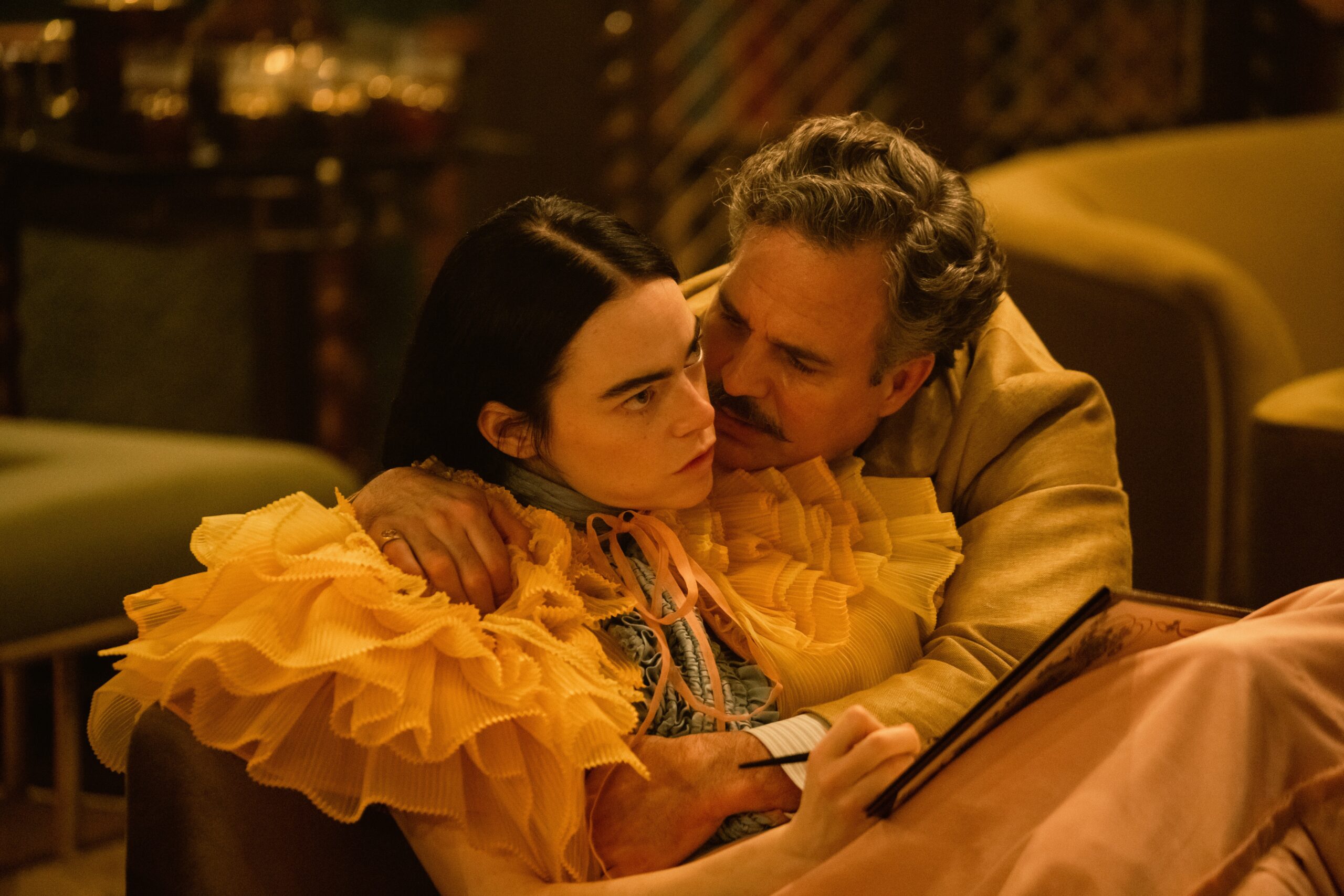
STUDENT REVIEW: POOR THINGS
by India Gwyn-Williams (University of Sussex)
Reviewed as part of CINECITY The Brighton Film Festival – Duke of York’s 10 Nov 23.
This film by Yargos Lanthimos is an incredible, abstract exploration into femininity, independence, love and creation. The film begins with an intriguing set of characters who are undeniably outcast. It is revealed that the protagonist Bella Baxter (Emma Stone) is not a normal girl – rather the brain of her mother’s unborn child in her mother’s body. The Frankenstein gothic style we open with, helped by the black and white shots, reveals her strange lifestyle and mannerisms, as well as her banishment from the world. Her yearning for the outside is mainly shown through Max (Ramy Youssef) who is a fan of her surgeon father, Godwin (Willem Dafoe). Max is invited into her life to study and understand her. As Bella becomes more sure of herself, a romantic attraction develops, though it is not enough for Bella, who craves wider connection. The craving is arguably what convinces her to leave her black and white world with the lustrous, purring Duncan Wedderburn, played by Mark Ruffalo. He is introduced to confirm Bella and Max’s marriage, but is immediately encapsulated by her uniqueness and offers to show her the one thing she has dreamed of – the world. It is confirmed that her life prior was a bubble of existence, a separate world for herself, as with her departure her life is given colour. From then on, Lanthimos develops the most beautiful, singing, bright world which possesses the audience as much as Bella Baxter.
The director has a mesmerising take on feminism, largely explored through the notion of sex. It seems with her outcast nature, Bella has been separated from herself just as much as the outside world. When she discovers sex, it opens a gateway of feeling, emotion and intrigue. Her desire to find connection with this concept enables further discoveries about the world, and her naivety of it prior is confirmed when we see Bella’s house without her for the first time. Godwin and Max are in vigorous, beautiful colour, and we realise that the black and white world was reserved only for her. It reveals a patriarchal influence behind her entrapment, something unfortunately continued by Duncan, who too becomes dishevelled at her social ignorance and at one point, literally puts her in a box to move location. It seems no matter what man encounters her, if they love her, they will eventually look to contain her.
A common theme is also religion and creation. The first and most obvious reference to God is Defoe, called Godwin, but referred to by Bella as ‘God’. This is exponentially fitting for her story, as she was created by him and also gained all her knowledge from him. One could argue he further gains his title ‘God’ from his work as a surgeon. The house is littered with unsettling but strangely affectionate hybrids – often animals with different heads to their bodies. This is a nod to his work as a ‘creator’ of sorts, but could also be linked to the reality of Bella. Though she is not presented in such an unnatural way, she is really a head (her brain), placed in another body – the body of her mother. When considering how they were both experiments for their parents, one out of love and one out of cruelty, Lanthimos implies that Godwin was called God because he created her life. She will be called god, as she created a life for herself, through her independence.
Poor things is complete art. From Stone and Ruffalo’s ground breaking performances, to the colour and music, the snare the world of Bella Baxter has on us – the film is incredible. There is an effortless comedy, romance, beauty and autonomy which possess the audience completely. We are left praying that Bella stays true to herself, her past and the world she has come to understand.
